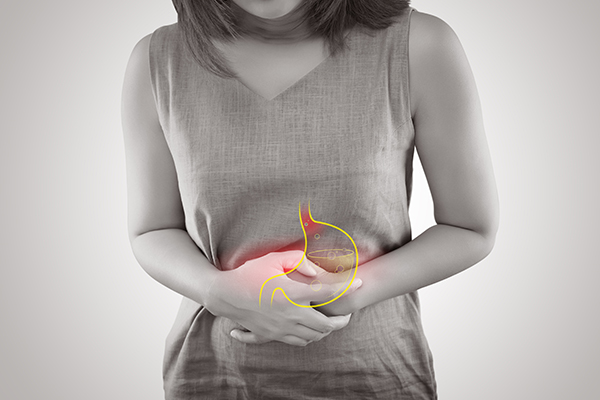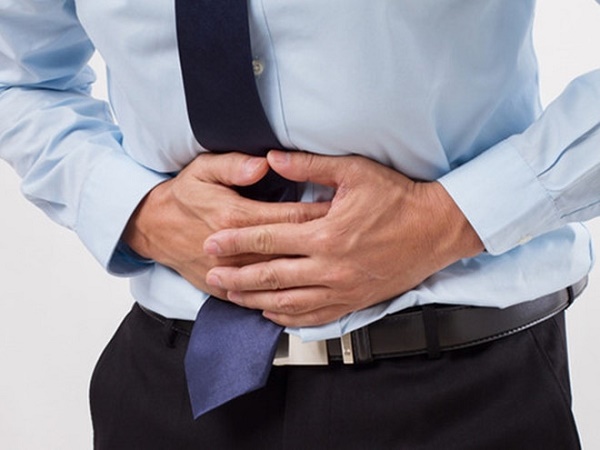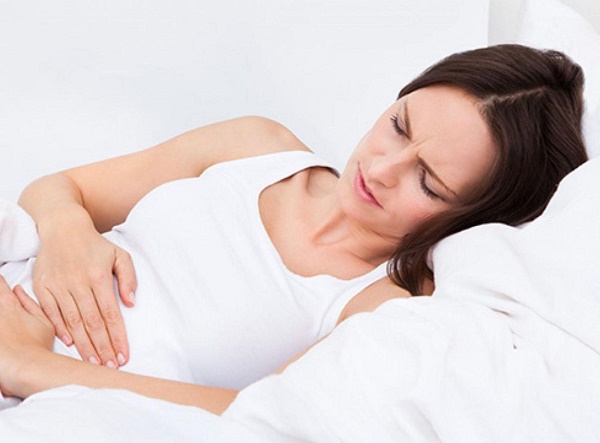What is peptic ulcer disease? Do you understand HP infection?
Peptic ulcer disease is a dangerous but common disease in the community. Since 1982, scientists Marshall and Warren have discovered Hp bacteria (H.pylori) is the cause of peptic ulcer. Factors such as stress, diet, and smoking can be considered as motivating factors to exacerbate ulcers. Let's find out the cause and how to detect disease like?
What is peptic ulcer?
Gastrointestinal ulcers are ulcers on the lining of the stomach or duodenum.
The cause of peptic ulcer
Causes of the gastrointestinal ulcer include: Helicobacter pylori and Non-bacterial (immune and chemical) infections, such as long-term use of non-steroidal anti-inflammatory drug steroids. Rarely, a malignant or benign tumor in the stomach, duodenum or pancreas.
Hp (Helicobacter pylori)
H.pylori is a bacteriophage that can cause peptic ulcers by destroying the mucous membrane that covers the lining of the stomach and duodenum. As soon as H.pylori destroys the mucous membrane, stomach acid can reach the lining of the stomach or duodenum and cause ulcers.

H. Pylori bacteria causes peptic ulcer
People infected with H. pylori easily develop Peptic ulcer. Most of us are infected with H. pylori from an early age and persist for many years. The disease usually progresses silently over many years. Some people think that H.pylori bacteria need not be considered when it is not yet causing the disease. However, a lot of convincing research evidence on the consequences and complications of H.pylori infection in the long run such as peptic ulcer, stomach bleeding, stomach cancer ... has shown effectiveness when H.pylori eradication treatment brings patients, both health and economy.
Signs and symptoms of peptic ulcer
Dull ache or stomach heat is the most common symptom. The patient feels pain anytime between the navel and the sternum. Pain often occurs when the stomach is empty, for example between meals or at night. The pain is temporarily reduced after eating or taking antacids, lasting from a few minutes to a few hours; Pain repeats many days, weeks or months later.
Other symptoms include: bloating, belching, changes in appetite, vomiting, nausea, weight loss.
Signs of peptic ulcer complications
Signs may appear loudly or silently until the patient clearly presents with clinical symptoms such as shortness of breath, dizziness or fainting sensation, red blood in the stool or black stools, red blood in the stool. vomit or coffee color, sudden, persistent and severe stomach pain.
Complications of peptic ulcer
There are 4 common complications such as:
- Gastrointestinal bleeding: poor gastrointestinal bleeding.
- Anal stenosis.
- Perforation of the stomach when the ulcer develops deeper and completely breaks the wall of the stomach or duodenum. Peritonitis is when inflammation or infection develops into the peritoneum - the lining of the abdomen.
- Stomach cancer.
How is peptic ulcer disease diagnosed?
Anamnesis
Can help doctor diagnose the cause of peptic ulcer. If the patient has symptoms of a peptic ulcer, the doctor will ask if the patient has used corticosteroids or non-steroidal inflammatory examinations, or family history.
Physical examination
patients often show epigastric pain points. Physical exams can help your doctor diagnose peptic ulcer disease and other conditions.
Tests
The tests used to detect H. pylori include: Diagnostic serum test, C13 breathing test and stool test. Stool and breathing tests detect H.pylori more accurately than testing. This test is important because the treatment of peptic ulcer caused by H. pylori will be different from the gastrointestinal ulcer due to non-steroidal anti-inflammatory drugs.
Blood tests: may indicate the presence of H. pylori.
Urea breathing test: To do this test, the patient will drink a special liquid containing urea - the body product produced when digesting protein. If H.pylori is present, the bacteria will convert urea into CO2 in the exhaled air, indicating the degree of H.pylori infection.
Stool test: Analysis of stool samples may indicate the presence of H. pylori.
Endoscopy of upper gastrointestinal tract
The doctor will insert the endoscope into the patient's esophagus into the stomach and duodenum. The camera will transfer images to the screen for a thorough inspection of the lining of the gastrointestinal tract. Patients may use anesthetic in the form of solution or spray into the throat before the colonoscopy. Or intravenous sedative to help patients relax, comfortable during endoscopy. Endoscopy shows signs of inflammation, slipping, ulcers and cancerous signs in the stomach lining. Endoscopy helps monitor stomach damage. Biopsy to identify H.pylori presence.
|
Endoscopy Department of City International Hospital is designed to meet the privacy, comfort and safety of patients. In addition, there is strict adherence to the principles of sterilization and disinfection to prevent the spread of germs through endoscopic instruments for patients and healthcare workers:
Highlight Activities of the Faculty:
|
Should you have any questions, please do not hesitate to contact us:
City International Hospital
- Address: No. 3, 17A Street, Binh Tri Dong B Ward, Binh Tan Dist. (Next to AEON Mall Binh Tan). Ho Chi Minh City.
- Operator: (+8428) 6280 3333, ext. 0
- 24/7 Emergency: (+8428) 6290 1155
- Website: https://cih.com.vn/en/
- Fan page: https://www.facebook.com/BenhVienQuocTeCity/
- Email: This email address is being protected from spambots. You need JavaScript enabled to view it.
General disclaimer
Always consult your doctor regarding any concern about your health. Your doctor will be in the best position to give the appropriate medical advice. For suspected undesirable drug reaction and seek medical attention immediately.












